Malaysia’s Finance Minister Tengku Zafrul on the ‘Bendera Putih’ campaign, job losses and standing for election
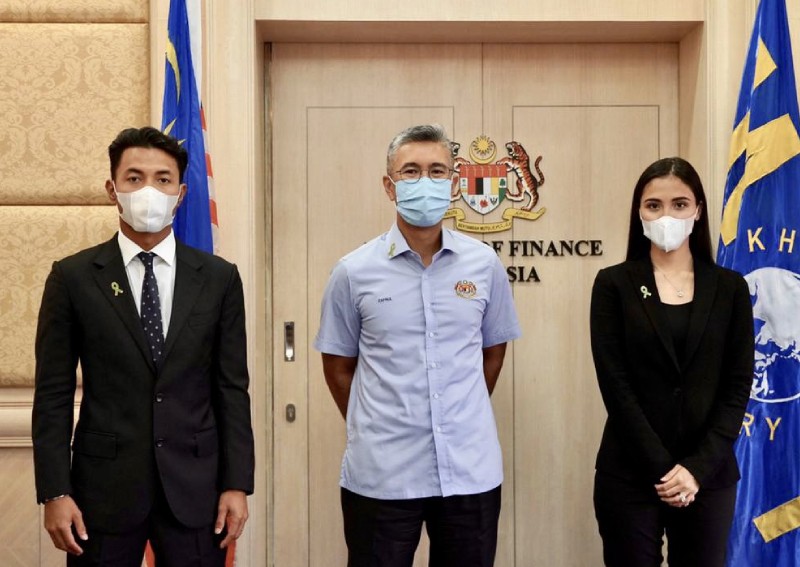
Twitter/tzafrul_aziz
Malaysia ’s Finance Minister Tengku Zafrul Abdul Aziz spoke to the South China Morning Post on a wide range of issues concerning the National Recovery Plan, a four-phase road map for the country to progressively reopen its economy by the end of the year.
While Malaysia’s heaving health care system is under pressure as the daily Covid-19 caseload remains stubbornly near record levels, a soaring vaccination rate is giving hope that the situation can be brought under control in months.
Prime Minister Muhyiddin Yassin meanwhile is also heading off political troubles, with key allies the United Malays National Organisation (Umno) recently indicating it no longer backed his ruling Perikatan Nasional alliance.
Zafrul, 48, was the former group chief executive of Malaysia’s CIMB Bank, before he was roped in by Muhyiddin last year as finance minister.
Below is an edited transcript of highlights from the interview. Some sections have been edited for clarity.
With the current political dysfunction, will the government last beyond 2021?
If you look at where we are today, if you want me to be very honest, it is of course, politically less than ideal. But the focus of this government, myself included, is to win the war against the current Covid-19 pandemic. We are facing a health crisis and an economic crisis. So the continued focus of the government is towards achieving what we intended to achieve under the National Recovery Plan.
For practical terms, does the government have parliamentary support to pass supply bills, including the upcoming budget?
Stability is important. We have shown that for the past decades since independence, Malaysia politically has been very stable. This has obviously opened Malaysia for investments to come in. But going forward, the challenges that we face today, politically, like I said, are less than ideal.
We need stability and I hope that going forward, the political parties can work together, especially during this pandemic where we are, like I said, facing a dual crisis. An economic crisis as well as a health crisis. What we don’t need is a political crisis.
Do you think you have to address a trust deficit among the public before you are able to execute the National Recovery Plan?
About a trust deficit, I think at the end of the day, it’s how we execute the plans that we have announced. To give an example: people were also very sceptical when we first announced our vaccination strategy.
We said that we can go up to 200, 300, 400,000 [doses per day] in a matter of weeks, and we have achieved that, but when we first announced that, obviously, people were sceptical, and you know, people thought that we couldn’t achieve it.
Similarly when we talk about trust deficit, the other initiatives are also similar. We need to prove that we can execute. So let’s wait and see. I’m quite optimistic, although cautiously optimistic, that we can achieve what we set out to do, especially in combating the pandemic of Covid-19.
Have you been too cautious with direct fiscal injections?
I don’t think we are too cautious. When you look at the deficit, the highest ever was in 2008-2009, the deficit at the time was 6.7-6.9 per cent. And even during the parliament session last year, I announced that the deficit target will be around 5.4 per cent.
And today, in February, I announced again it will be 6 per cent. And with the recent stimulus packages that we have announced, I believe the deficit will go up to 6.5 to 7 per cent. So it shows the government is ready to increase fiscal space should we need to support the economy and the people.
The direct fiscal injection is something like 6 per cent of GDP. Some of your critics say this is too low as you have a lot more fiscal head space and can borrow more. Are you being incrementalist in your approach? What’s the thinking behind your current approach?
Well, you have to look at it holistically. You must understand the fiscal position of the country. Today we have a deficit that is going to reach 7 per cent.
It’s also not about the size of the deficit. It’s the ability to borrow and the size of the reserves. So Malaysia as you know, although we are A-rated, we in terms of our fiscal reserves smaller than many other A-rated countries. The only difference is that we have strong growth prospects.
So when we look at where we are today, we do tap into other parts of the government’s ecosystem. We get assistance from the central bank, EPF [national provident fund], the banks giving moratorium. If you look at the moratorium that we have offered to Malaysians today, both private and companies, you can’t get it anywhere in the world. It is so streamlined and so focused. We have a strategy there.
And at the end of the day, what’s important is whether it’s adequate and I feel that what support the government has given, given the fiscal constraints that we have, is adequate. You must also look at our debt service coverage ratio and you must also look at the liquidity of the domestic institutions today.
Does the White Flag or Bendera Putih campaign aimed at helping those who are in economic despair suggest the government’s stimulus packages are not working?
No, I don’t believe so. If we look at this, we have addressed some of those issues by ensuring that all the elected representatives are given allocation to support their constituency.
In fact the government has itself launched a food programme and has been with all segments of society, the NGOs, the opposition, because it is tough times and you must remember there will be pockets of our community, especially the vulnerable segment of society, that still need help.
And we will focus on that. We have got another 10 billion ringgit of fiscal injection, of cash support, directly to Malaysians. We have seen 5.8 million Malaysians receive this aid. I am not saying that there might be pockets of people who we may miss out but we are there to learn from our mistakes and make sure that everyone does get the support that is required.
Official figures show unemployment dropped from 5.3 per cent in May last year to 4.5 per cent 12 months later. How do you square that off with reports of massive job losses?
OK, I will be very brutally honest here. The 5.3 per cent was the peak in the first lockdown [last year], which was a total lockdown. Our GDP in that second quarter of last year went down by 17.1 per cent. It was the highest unemployment rate ever for Malaysia.
And then we also had various initiatives in our packages, reskilling, upskilling. Wage subsidies also helped – 2.8 million Malaysians actually benefited from this directly through the subsidy for their wages.
Then we can see the economy improve in the third quarter, fourth quarter of 2020. And in the first quarter of 2021 as well, was a negative 0.1 per cent GDP number, which is really a flat number. It was a big swing from where we were at, negative 17.1 per cent.
So of course unemployment was going down. So [4.5 per cent unemployment] was actually in May, that was before the [current] total lockdown. I don’t know for sure, but looking at what’s happening on the ground, I believe that number will go up because that was as of May.
Another point you need to factor in is that [the official unemployment rate] refers to the formal economy. Malaysia as you know has a big informal economy where the numbers [may not capture] those employed in these sectors.
These are the mom and pop stalls out there. In short, I think the numbers will go up even in the formal sector and the current figures don’t take into account the informal sector.
You will have to create jobs in the post-pandemic era. A lot of jobs may have been permanently lost. What’s your plan for job creation in the post-pandemic era?
Yes, that is part of the National Recovery Plan. We have formed the National Employment Council. It targets the creation of 500,000 jobs and the prime minister just announced it should target 1 million jobs. For now, we have created nearly 300,000 jobs.
But that was before the lockdown. Now because of the lockdown we have to increase the target, especially fresh graduates coming on stream and people who have lost their jobs. That is going to be key.
And budget 2022, which is being formulated today, will definitely cover this aspect when it comes to unemployment. But this is a structural issue and this is a chance to fix this.
We also have to make sure that we train the right graduates for the jobs of the future. Sometimes unemployment is also created by training and producing university graduates for jobs that are no longer relevant and there are new jobs that companies are looking at.
Since you came to power, there have been complaints from the opposition about collaboration with the government. The opposition for example said you gave lip service to collaboration during last year’s budget formulation. What will collaboration with the opposition parties look like in the coming months?
I think it’s important that we be inclusive and consultative, not just with the opposition parties but also with other stakeholders including NGOs, chambers and all that.
That we have done every year, but this year for the first time I actually engaged all the political parties even for the budget. This time round, for the National Recovery Plan, we are still in the midst of formulating it and in fact it’s going to be presented to cabinet only next [this] week and I have already started to engage.
I think it is important to hear their views, and to be honest, the meetings have been very productive. I had a meeting with Dr Mahathir, with the DAP, Lim Guan Eng, PKR and of course the other coalition [partners] as well within the government.
They have come up with their ideas, some proposals, and it’s good. I have met [parties from Sabah] and various others. They have given some good ideas. They all face different challenges in their constituencies and it’s important you know, for people like me, especially, who’s trying to draft and formulate this recovery plan, that we listen.
They are after all the front liners. They meet the people, they are the touch points. I think it’s been quite good, I am very happy they have been very open giving good ideas. I am going to continue this, this is not a one-off. In fact I am meeting some of them for a second time next [this] week to try and understand better some of the proposals.
I want to make data available to all because when they have data, they will get to give the right advice, and the right advice meaning good feedback that is relevant and updated based on the current situation.
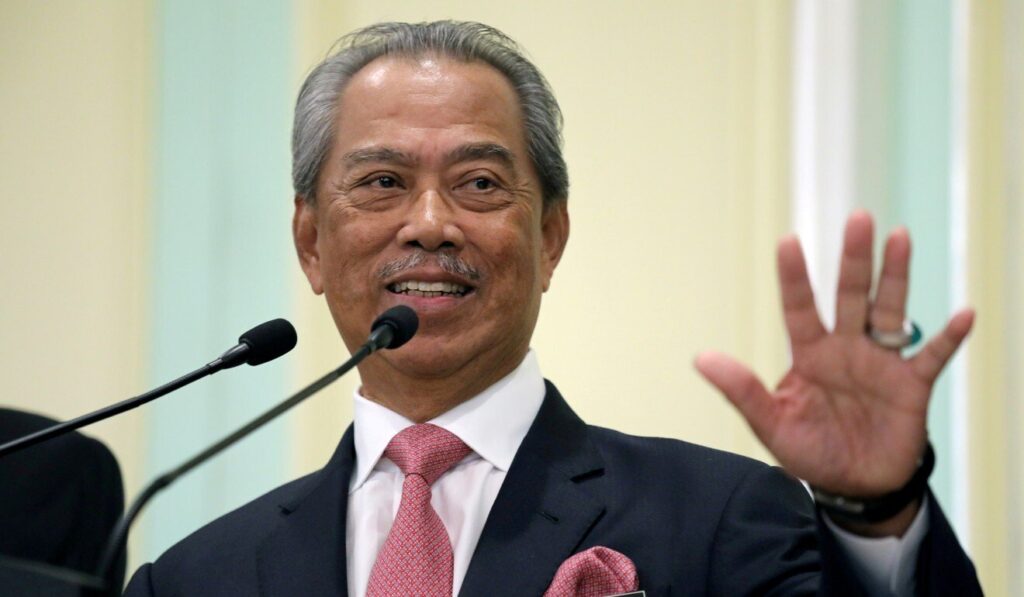
PHOTO: Reuters
Is there a specific reason why you are doing the outreach to the opposition parties? Is it possibly because you are a technocrat non-aligned to the warring political parties?
I don’t think so. Well probably, when it comes to speaking my mind because the focus is straightaway to work. They know my focus with me doing this today is trying to ensure Malaysia recovers from the current crisis. So we don’t waste time talking about politics. When we meet, straightaway we go down to business, they say this is what we need, this is what we need to do better.
There’s a lot of very constructive criticism given to me and to the government and this is important, I think. I think that this should continue and I am glad and I am quite excited, honestly, that the National Recovery Plan will also be debated in parliament.
There’s a rising debate around the world about governments pursuing an endemic Covid-19 policy, where societies will be asked to live with Covid-19 after mass vaccination. Do you think there will be a pushback in Malaysia towards an endemic policy?
There is still a debate. When we spoke to the director general of health, he said it is too early to [move to an endemic policy]. They say the vaccination rate has to go up, the case numbers must go down.
I think it’s important that we focus on the issues that we are facing today, the immediate issues. I don’t want to mind-condition Malaysians too early about whether we are endemic or it’s still an epidemic. The situation is very, very fluid and whatever positions we make can change the next day.
As finance minister, you have been the target of criticism by people who feel the economic aid during the current crisis is inadequate. How have you been dealing with the brickbats?
To me, my conscience is clear. I have done my very best. I didn’t come to this job to be popular. I came to this job to do the right things. I have seen the numbers, the fiscal situation of the country, and we work closely with [the central bank, Bank Negara Malaysia] on monetary policy.
We engage all the stakeholders, be it small enterprise, micro enterprise, SMEs, the multinationals, and of course most importantly, the citizens of Malaysia.
So if we look at what we have done, perhaps it’s not perfect but given the crisis that is unprecedented, I don’t think anyone knows what to do, really. There is no so-called precedence nor textbook I can refer to. So it’s important that we do our best. But what’s also important is we all, together, unite to win this war against Covid-19.
Will you stand for elections once the pandemic abates?
I will not be standing for election for any party. I came here to support, I mean this is like a national service for me, right? I was in CIMB, running the whole group.
And my intention has always been to assist fellow Malaysians during this pandemic crisis. I have no plan at this moment to enter politics, and my focus continues to be to help Malaysia in navigating this so-called unprecedented crisis.


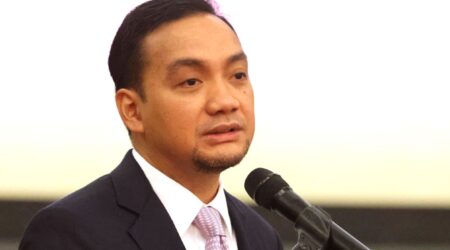




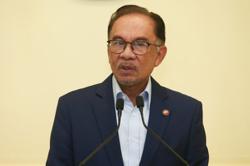

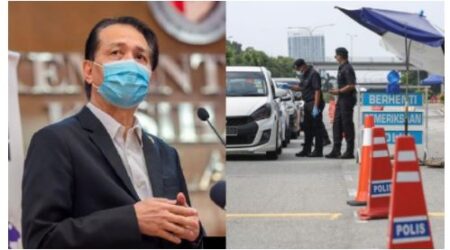


Comment (1)
What i don’t realize is if truth be told how you are not really much more well-favored than you might be right now. You’re so intelligent. You understand therefore considerably relating to this subject, made me individually believe it from so many numerous angles. Its like women and men don’t seem to be involved unless it is something to do with Girl gaga! Your individual stuffs great. At all times take care of it up!